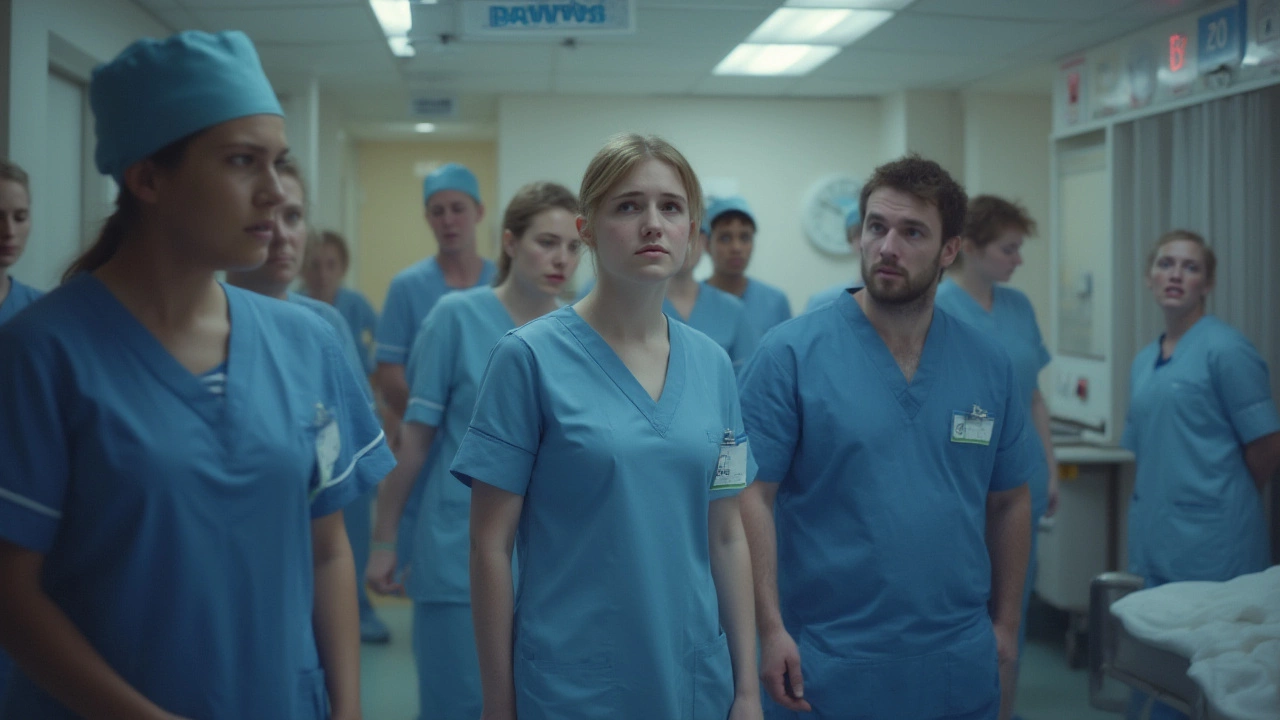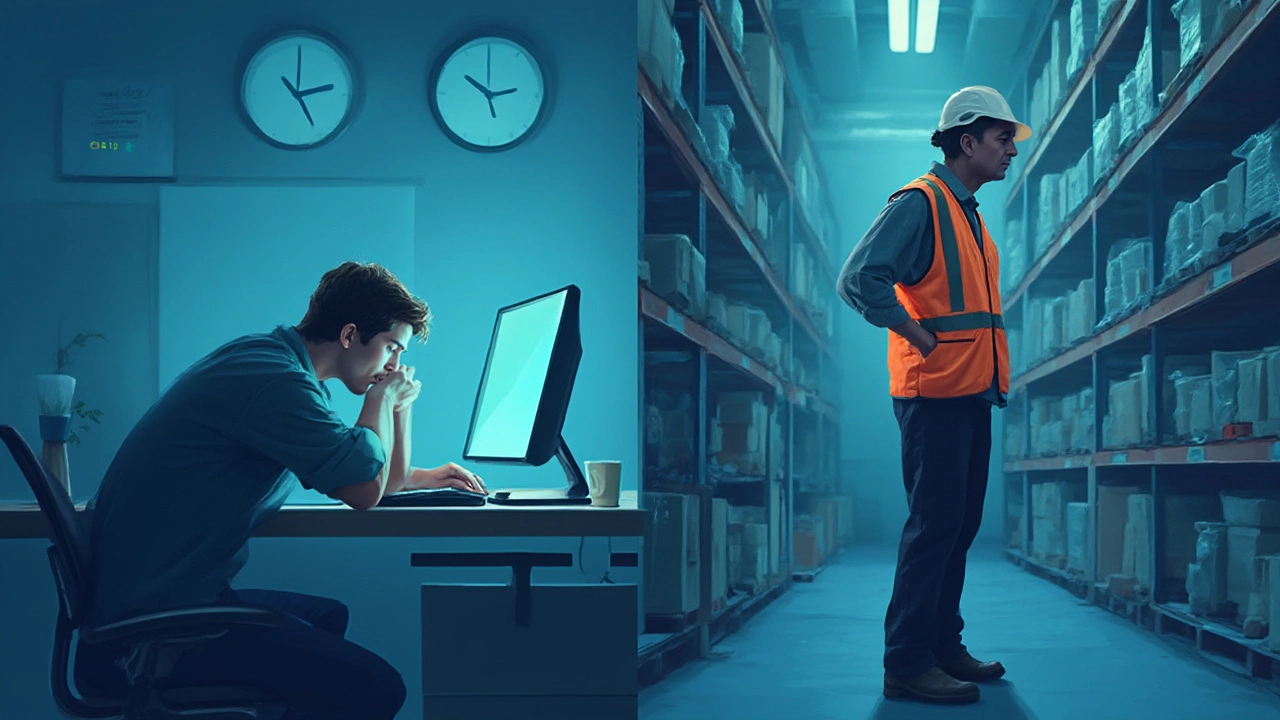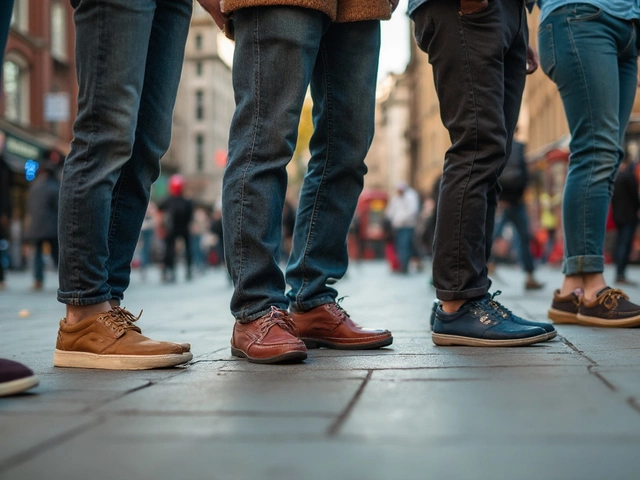Do 12 Hour Shifts Harm Your Health? Expert Insights and Real Tips

- Cleo Fairchild
- 7 July 2025
- 0 Comments
I’ll be honest, I used to think 12 hour shifts were just a dreadful cliché made up by TV nurses or desperate parents who wanted a good moan. But when my sister, who works at Southmead Hospital in Bristol, barely managed a smile after a string of three back-to-back twelves, it hit me. Long shifts aren't just a badge of toughness—your body keeps the score, whether you accept it or not.
The Toll of 12 Hour Shifts: What Happens to Your Body?
Right, let’s cut through the hype. Twelve-hour shifts aren’t just more time at work. They mean missing lunch breaks, eating sad vending machine snacks, and scrolling your phone at midnight, trying to trick your brain into “off” mode. The science is stark: a study in The Lancet (2020) tracked 5,000 UK healthcare workers and found those on 12 hour schedules had a 27% higher risk of developing chronic fatigue syndrome than those working standard 8 hour shifts. Being “tired” isn’t just yawning through a Netflix episode—it’s your immune system dragging, your body healing slower, and your mind running on fumes.
Now, let’s talk hormones. Your body loves a rhythm—cortisol, melatonin, adrenaline—they all thrive with regular wake, eat, and sleep patterns. Drag those routines out to 12 hours, and everything from mood swings to digestion takes a hit. That’s why after a few twelves, you wake feeling hungover (sans the fun), ache like you’ve scaled Pen y Fan, and crave carbs, caffeine, or sheer solitude. Even the World Health Organisation recognises shift work as a “probable carcinogen,” especially for night shifters. People who pull regular 12s report higher rates of back pain, indigestion, forgetfulness, and even heart palpitations.
Have kids? Try maintaining patience with a toddler after a 14-hour stretch (yup, twelve hours plus handovers and commutes—let’s not kid ourselves). Sleep may be the biggest casualty. Long shift patterns crush both the quantity and quality of sleep. Chronic sleep debt builds fast, messes up memory, and weakens your mental resilience. My son Dorian sometimes asks why grownups glare at the clock in the morning. Twelve hour shifts, my dear—twelve hour shifts.
Fact or Exaggeration: Is It Really That Bad?
Let’s be fair—some folks swear by long shifts. For a chunk of the workforce, condensing hours means more days off. Nurses, factory workers, public transport operators, and emergency services—lots of them cherish their “four days on, four days off” rhythm. Here’s the problem: science keeps stubbornly stacking up against us. A 2023 study from University College London tracked bus drivers on long routes and compared their stress markers to office workers. The drivers had 31% higher cortisol spikes, more frequent headaches, and reported worse moods, especially on shift three and four.
But it’s not always about physical health. Long shifts can whack your concentration. Day four, hour nine, it’s easy to forget vital steps—ask anyone who’s mixed up medical charts at hour eleven or burned dinner on auto-pilot after a long stretch. Traffic accidents, mislabelled prescriptions, errors in machine operation—all statistically rise after the eighth hour, according to the Health and Safety Executive’s 2022 report.
But here’s something rare—a sliver of positive. Some people adapt surprisingly well. A survey by Unison in 2022 found about 20% of shift workers actually felt “better able to balance work and life” on 12 hour patterns, mostly due to having more whole days off in a row. But this benefit vanishes quickly for people with irregular schedules or forced overtime. If every week is a guessing game, your body never finds its groove. And the negative impact stacks up faster.

Common Health Issues From 12 Hour Shifts
The fallout from shift work isn’t subtle—it’s written all over UK health stats. Here’s what workers often report:
- Fatigue: Obvious, right? But it’s not just nodding off. Chronic fatigue leads to higher sick days, mistakes, and even accidents in and out of the workplace.
- Digestive Problems: Weird hours mean meals at odd times or skipping them entirely. This throws off gut health, sparking bouts of heartburn, IBS, or just feeling permanently “off.”
- Mental Health Strain: Anxiety and depression rates in shift workers are 40% higher according to the NHS Digital survey from late 2023. The lack of social time and routine stings especially hard for parents or anyone with caring duties.
- Weaker Immune System: Fewer hours of deep sleep and more stress hormones leave you open to every cold, flu, or bug sweeping the halls or factory floors.
- Circadian Rhythm Disruption: You’re less alert at night and less able to wind down in the morning. Ever try sleeping at 10 am after a night shift? Impossible, without blackout curtains or magic.
And for a reality check, here’s what the numbers say in a typical UK hospital staff survey:
| Health Issue | Reported by 8hr Shifts (%) | Reported by 12hr Shifts (%) |
|---|---|---|
| Chronic Fatigue | 15% | 42% |
| Back Pain | 21% | 33% |
| Heartburn/Indigestion | 13% | 27% |
| Sleep Issues | 24% | 48% |
Those are not small leaps—nearly half of 12 hour shifters say their sleep is ruined. If you find yourself weeping in the kitchen at 2am after a long stretch, it’s not just you. It’s biology, not weakness.
Tips to Survive (and Maybe Thrive) on Long Shifts
You don’t always get to pick your schedule—trust me, I’ve argued enough with rota managers to know. But you can outsmart some of the worst pitfalls:
- Meal Prep Like a Pro: The odds of finding fresh veg in a vending machine are nil. Double up your dinner portions and take leftovers to work, or try overnight oats with nuts for slow-release energy.
- Hydrate Relentlessly: Dehydration makes fatigue worse. Keep a bottle nearby—bonus, it gives you an excuse to wander and stretch.
- Micro-Breaks Really Work: Even two minutes every hour makes a difference. Stand up, walk, breathe—anything but stare at the same wall.
- Block Out the Sun: If you’re sleeping during the day, blackout curtains are your best friend. Earplugs, too—especially with noisy neighbours or energetic kids.
- Keep Social Anchors: Meet a friend for coffee on your off-days or video call your family. Human connection helps buffer the effects of weird working hours.
- Stick to a Routine if You Can: Even small rituals—tea before work, shower after—cue your body to wind up and wind down.
- Don’t Be Afraid to Ask for Help: Many workplaces offer counselling, physio, or practical support for shift workers. Use them—no shame. Your body is not a machine.
- Limit Overtime When Possible: If you’ve hit four 12 hour shifts in a week, say no to the fifth (unless it’s a true emergency).
If you’re parenting on these hours, find allies—a neighbour who can do school drop-off, or a meal-swap group where you each cook one big batch for everyone. Small hacks make the grind less brutal.

What Should Change For Shift Workers?
It’s wild that so many essential jobs bank on workers holding out through endless 12s. The NHS has trialled “6 on, 8 off” patterns in some Trusts—shorter shifts, more frequent breaks, and scheduled naps for late shifts. These pilots saw a 23% drop in chronic fatigue claims in just a year. Some hospitals in Sweden have shifted to 6 hour days, and reported not only higher patient care scores, but also happier, healthier staff with no loss in productivity.
But systemic change is slow. Until then, it helps to push for small wins: clearer scheduling, guaranteed breaks, and proper rest spaces. If you’re unionised, speak up for safer rotas. More and more research backs the idea that shorter shifts and better rest save money by preventing errors and lowering absenteeism.
If you’re stuck in the 12 hour grind, remember—your fatigue isn’t laziness, it’s your body talking sense. Listen in, get strategic, and don’t let anyone tell you toughing it out is just “part of the job.” Both science and sanity are on your side. And after all, your health isn’t just for your boss or company—it’s for the people at home who wonder why you trudge through the door, craving only your bed and silence. You’ve earned something better.


